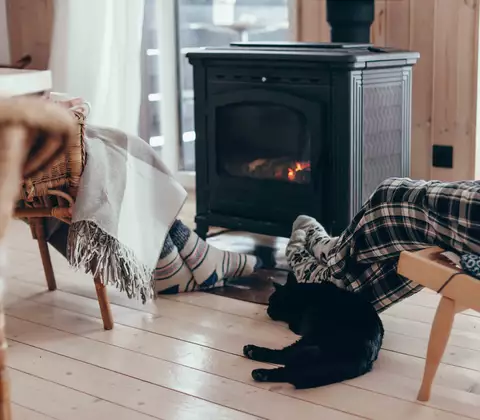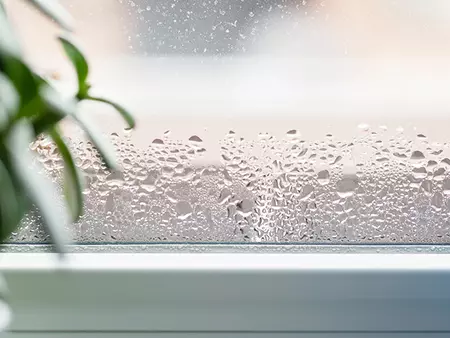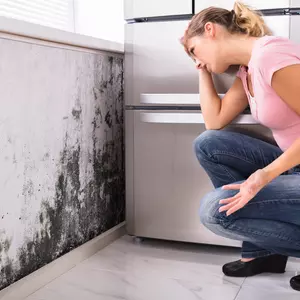
Tips and tricks to combat dry heating air
Everyone has experienced it and no-one likes it: dry heating air is not only unpleasant, it can also be harmful to health. However, we still need our living rooms and offices to be comfortable and warm in winter. So what can you do to avoid dry heating air?
Dry heating air
The air quality inside a building has a massive impact on our physical well-being. It is determined by a combination of air temperature, air composition and humidity.
You can use a hygrometer to measure the air humidity in a room. The composition and quality of the air can be analysed with a multi-function meter or flow meter.
Ideal air humidity
The ideal air humidity level depends on the room and how long you use it. Here are some guidelines for what would be considered the optimal humidity level in different rooms:
- Living room 40 to 60% relative humidity
- Bedroom 40 to 60% relative humidity
- Children's room 40 to 60% relative humidity
- Kitchen 50 to 60% relative humidity
- Bathroom 50 to 70% relative humidity
- Basement 50 to 65% relative humidity

What causes heating air to be too dry?
Dry heating air is a phenomenon that is most common in winter. Cold air has a lower capacity for absorbing water vapour and moisture than warm air. It follows that warm heating air absorbs moisture better.
Heating causes humidity to drop, which causes the air to feel dry. You should therefore measure humidity levels with a hygrometer on a regular basis.
If you’re suffering from any of the following, your heating air could well be too dry:
- Difficulty sleeping
- Dry eyes
- Fatigue
- Headaches
Dry heating air: consequences and countermeasures
The risk of catching a cold goes up in cold weather, as does the risk of infection. Dry heating air is a breeding ground for viruses and bacteria. Here are some of the consequences of dry heating air and how you can avoid them:
Heating air dries out your mucous membranes, eyes and airways. It also makes your skin dry out quicker. Creams and eye drops can help, but it is far more effective to make sure you have a regular supply of fresh air and optimum humidity.
The risk of viral and bacterial infection is higher in dry heating air, as viruses and bacteria spread better and survive longer. Dry mucous membranes are more susceptible to pathogens. Make sure you drink plenty of fluids and use a nasal spray if needed.
Dry heating air is less effective at transporting oxygen. This can lead to breathing problems, headaches and disturbed sleep. Make sure you ventilate your bedroom well before sleeping.
Wood, leather and other materials tend to crack when they dry out. Treat your furniture with products like upholstery polishes or oil.

Other tips and tricks
You can achieve a healthy air quality with modern ventilation systems. In addition to a particle filter for dust, fine particulates and pathogens, these devices also include heat recovery systems.
These exchange air automatically and keep the relative humidity level between 40 and 65%.
With a few simple hacks, you can improve your indoor climate even without technical equipment. To avoid dry heating air, you should:
Use house plants, which trap CO2 and produce oxygen to improve the indoor environment.
Use humid air from your bathroom and kitchen: after showering, bathing or cooking, leave the door open so that the humid air can disperse.
Aquariums and water bowls: A water tank or water bowl on a convection heater will increase the humidity level as the water evaporates. An aquarium can also humidify indoor air.
Don’t heat your home more than necessary: the higher the room temperature, the more moisture the air binds and the drier the air feels.
Regular air exchange: ventilate properly by leaving the window wide open for a few minutes. Leaving your windows slightly open isn’t enough.


